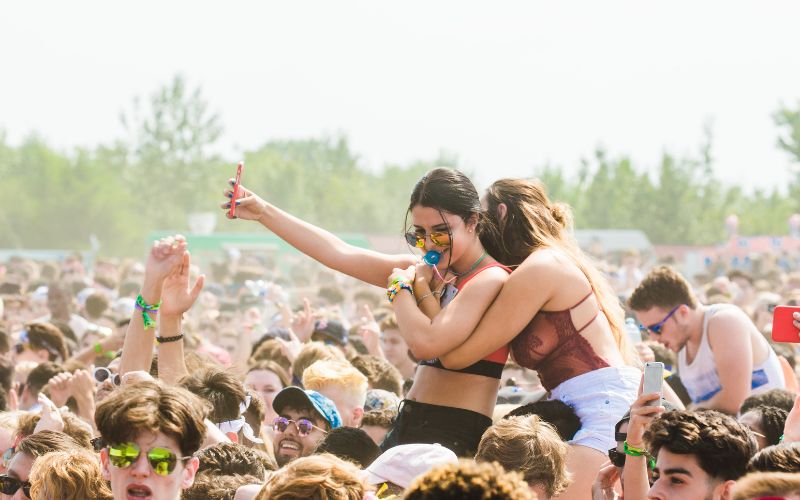
The Summer Holidays are coming! The sun is shining (sometimes), denim jackets are out, and the newsagents are selling out of Magnum ice creams. That’s right, it’s almost summer.
And with summer comes the summer holidays, a chance for pupils and teachers to unwind from the stresses of the year and to reconnect with the people closest to them. It’s important that pupils have a relaxed, easy holiday, so that they can come back in September feeling refreshed and energised for the year ahead.
Use the topics and videos below in your classroom, to help prepare your students for the holiday ahead, and equip them with the tools they need to take care of themselves outside the school gates.
Friendships during the summer holidays
The summer holidays are a great time to chill out and hang out with friends, but what happens when a friendship breaks down? In school, pupils have the support of their teachers when they disagree with their friends, but once school’s out, this conflict-resolution infrastructure falls away.
Practical ways to resolve a disagreement with a friend
It’s important that students feel equipped to handle disagreements by themselves, and learn how to communicate healthily and express how they feel. Here’s a video from the Life Lessons students, talking about what to do when you disagree with a friend.
Suggested discussion topics for your classroom:
- What are some of the reasons why you might block someone? Is this always the best option?
- How would you want a friend to take criticism if they had done something to hurt you?
- What are some practical ways to tell someone they’ve hurt you or done something wrong?
Social Media during summer holidays
In this digital age, social media has become part of the air we breathe. Not only will students spend time with their friends and family eating, playing games, and enjoying themselves, but they’ll post about it on their socials. Social media can be amazing to help students bond, and to keep them connected when they don’t see each other in school every day, but it also has the power to cause damage, and become a tool for bullying.
In school, pupils know where to go when they’re being bullied online, and teachers can look out for pupils and try to mitigate some of the effects of online bullying. But once the school gates close, it’s vital that students know how to protect themselves online, and know what to do when they’re being harassed or singled out.
How do you deal with unwanted comments on social media?
Do your pupils know what to do when they’re being bullied online? Below, Life Lessons students consider what they’d do with an unwanted comment on their social media. What would your pupils do? What would they do if they saw one of their friends being bullied online?
Suggested summer holiday discussion topics for your classroom:
- Other than reporting an unwanted comment, what else can you do when a comment you don’t like shows up on your social media post?
- Why might people choose to write these kinds of comments?
- What are some of the pros and cons of social media platforms like Instagram and Twitter?
Body Image / Summer Holiday Bodies
With higher temperatures come shorter shorts, crop tops, swimsuits, etc. Our bodies are a big part of our summer experience, but what happens when you feel uncomfortable in your body? When your body doesn’t look like the perfect celebrity bodies you’ve seen online or on TikTok?
Body Image
Body image can be a huge source of anxiety for pupils, and it’s important to enable them to think critically about the expectation they might have for their body, and whether or not they’ve been influenced by the unrealistic standards set by the media they consume.
In this video, Life Lessons students talk about the unrealistic bodies they’ve seen in teen movies and magazines, and the harmful effects of this.
Suggested summer holiday discussion topics for your classroom:
- Why do teen movies show teenagers with six packs or big boobs? What are the problems with this?
- Do you agree with Jaeda when she says people should focus on what’s in our mind first and then looks/body image second?
- How do Tik Tok and Instagram create an idea of bodies that do not match up with reality?
Parties
The summer holidays are a time to let loose and spend time with friends, but it’s also a time when pupils are most exposed to parties and for teenagers that may include the presence of drugs, and alcohol.
More often than not, alcohol and drug consumption will happen without the supervision of an adult, so it’s important to teach students to be responsible for each other, and some of the signs to look out for when drug and alcohol consumption becomes dangerous. In the scenario below, some of the Life Lessons students talk about their responsibilities to their friends on a night out.
What are your responsibilities to yourself and your friends on a night out?
Ahead of the summer holidays, consider posing this same question to your students. What are your responsibilities on a night out? How do you know when a night out has gone too far? What should you do about it?
Suggested summer holidays discussion topics for your classroom:
- What are some ways to prepare for a night out to make sure everyone is safe and protected?
- What are some key ways to make sure everyone is safe and enjoying themselves on a night out?
Check out our blog: What TV Taught us About Sex that School Never Could
These are just some of the ways we can help our students manage without us when that final bell rings. For more videos to spark these kinds of conversations with pupils, become a Life Lessons school so you can access the full video library, discussion prompts and lesson plans.

